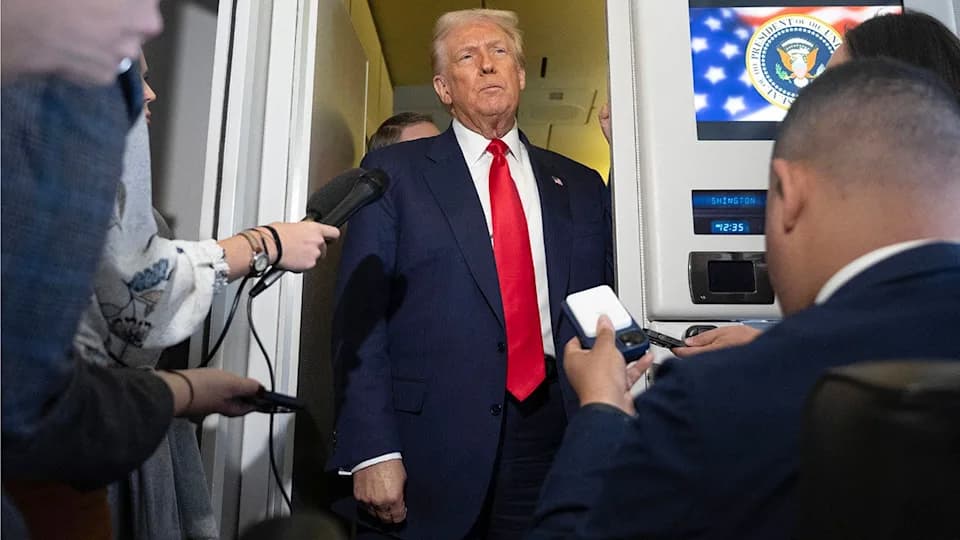We're loading the full news article for you. This includes the article content, images, author information, and related articles.
A landmark US Senate vote to scrap sweeping Trump-era tariffs could lower import costs for Kenya's critical sectors and stabilise trade relations, though the bill's final passage remains uncertain.

WASHINGTON D.C. – In a significant rebuke of protectionist trade policies, the United States Senate on Thursday, October 30, 2025, passed a resolution to nullify sweeping global tariffs imposed during the Trump administration. The measure, which targets broad tariffs affecting over 100 nations, passed with a bipartisan 51-47 vote, signalling a potential shift towards multilateral trade principles. While celebrated by free-trade advocates, the resolution is considered largely symbolic as it faces an uphill battle in the House of Representatives, where leadership has previously blocked similar efforts.
For Kenya, the move in Washington could have significant, albeit indirect, economic consequences. The Trump-era tariffs, particularly the broad levies on industrial goods and the retaliatory measures during the US-China trade war, created global economic volatility. This uncertainty impacted Kenyan supply chains, currency stability, and the cost of imported goods essential for development.
Economists suggest that a repeal of these tariffs could lead to more stable global prices for crucial commodities like steel and aluminium. Kenya imported approximately US$843.33 million worth of iron and steel and US$110.57 million in aluminium in 2023, primarily for its burgeoning construction and manufacturing sectors. The global price inflation caused by the tariffs likely increased costs for major national infrastructure projects under Kenya's Vision 2030 agenda. A reversal could ease this pressure, potentially lowering construction costs and boosting industrial output.
The Senate's vote also brings renewed focus to the future of the African Growth and Opportunity Act (AGOA), a cornerstone of US-Kenya trade relations that is set to expire in 2025. AGOA has provided duty-free access to the US market for thousands of Kenyan products, anchoring the nation's vital textiles and apparel industry, which grew its exports to the US from US$55 million in 2001 to US$603 million in 2022. The protectionist sentiment that drove the tariff policies created significant uncertainty around AGOA's renewal, alarming Kenyan exporters and investors.
While the Senate's resolution does not directly address AGOA, it signals a legislative mood potentially more favourable to international trade agreements. A more stable and predictable US trade policy environment would be a significant boon for Kenya, allowing businesses to make long-term investment decisions with greater confidence. The US-China trade war, in particular, placed trade partners like Kenya in a difficult position, with risks of supply chain disruptions and increased costs for Chinese imports. A de-escalation of global trade tensions would reduce these risks.
The legislative action was driven by a coalition of Democrats and a handful of Republicans who argued the tariffs bypassed congressional authority and harmed American consumers and businesses. Senator Tim Kaine of Virginia, a key proponent, stated the vote was a message to the executive branch about its overreach in trade policy.
Despite the Senate's move, the bill's future is far from secure. Current rules in the US House of Representatives make it unlikely that the resolution will be brought to the floor for a vote. Furthermore, any such legislation would likely face a presidential veto. Therefore, while the vote marks a notable moment in the ongoing debate over US trade policy, its immediate, tangible impact is limited.
For now, Kenyan policymakers and business leaders will be watching Washington closely. The vote provides a glimmer of hope for a return to a more stable, rules-based international trading system, but the political hurdles to unwinding the tariffs remain formidable. The primary benefit for Kenya in the short term is the strengthened argument for the renewal of crucial trade frameworks like AGOA, which remain vital for the nation's export-led growth.
Keep the conversation in one place—threads here stay linked to the story and in the forums.
Sign in to start a discussion
Start a conversation about this story and keep it linked here.
Other hot threads
E-sports and Gaming Community in Kenya
Active 9 months ago
The Role of Technology in Modern Agriculture (AgriTech)
Active 9 months ago
Popular Recreational Activities Across Counties
Active 9 months ago
Investing in Youth Sports Development Programs
Active 9 months ago